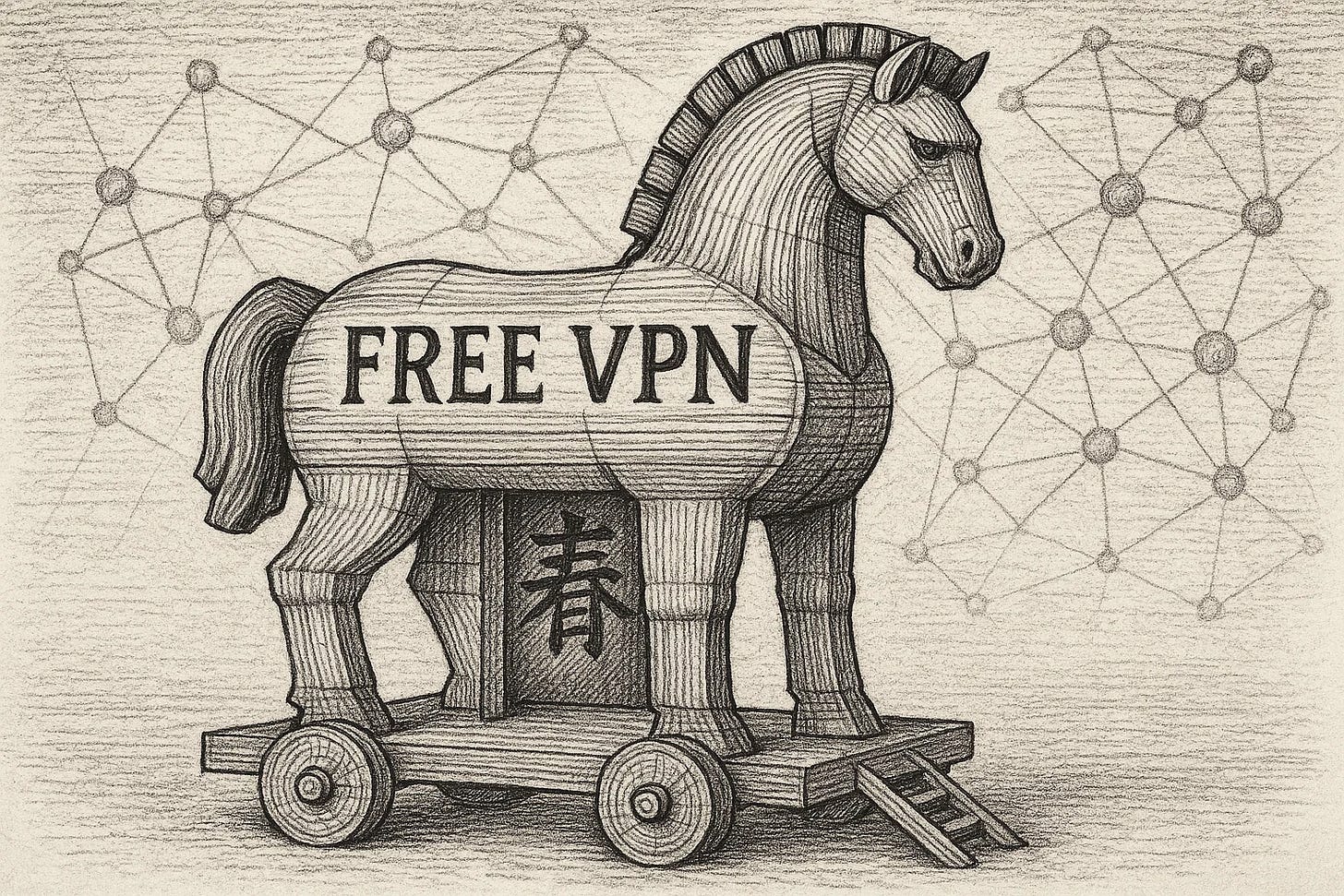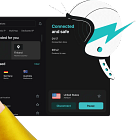Does Your VPN App Have Secret Ties with China?
Why your 'free' VPN might be secretly owned by Chinese companies—and what to use instead
Does Your VPN App Have Secret Ties with China?
You installed that “free” VPN app to protect your privacy, but what if it's actually doing the opposite? A new investigation reveals that some of the most popular VPN apps in Apple's and Google's app stores are secretly owned by Chinese companies—and they're not telling you about it.
Even worse, several of these companies have direct ties to China's military. If you're using a VPN to stay private online, you need to know which apps you can actually trust. The findings might make you want to delete a few apps from your phone right now.
The Apps You Need to Know About
The Tech Transparency Project's latest investigation found that 24 Chinese-owned VPN apps remain available across Apple's App Store and Google Play Store. These aren't obscure apps, either—some rank in the top 20 most downloaded free VPNs in the U.S.
The most concerning findings involve apps connected to Qihoo 360, a Chinese cybersecurity firm that's been sanctioned by the U.S. government over its ties to China's People's Liberation Army:
Turbo VPN (available on both stores)
VPN Proxy Master (available on both stores)
Snap VPN (Google Play only)
Signal Secure VPN (Google Play only)
Other Chinese-owned VPNs that don't disclose their origins include X-VPN, Super VPN, Fast VPN, VPN Master, UFO VPN, and HulaVPN.
For the complete list of all 24 apps and detailed technical analysis, read the full Tech Transparency Project report. The investigation includes revenue data showing some of these apps have generated millions in U.S. sales.
For the most up-to-date information about the privacy tools and services I personally use and recommend, check out my comprehensive privacy toolset. I regularly update this list based on new research, security audits, and changing threat landscapes.
Why Hidden Chinese Ownership Threatens Your Privacy
When you use a VPN, you're routing all of your internet traffic through that company's servers. Every website you visit, every search you make, every file you download—your VPN provider can see everything. That's why transparency about ownership isn't just nice to have—it's essential.
The China Problem
Chinese companies operate under the country's National Intelligence Law, which requires them to cooperate with intelligence gathering when requested. There are no exceptions, no court orders needed, no appeals process. If the Chinese government wants your data, companies must comply.
Deceptive Business Practices
These VPN apps deliberately obscure their Chinese ownership using shell companies and misleading developer names. The investigation found complex corporate structures designed to hide true ownership. If a company won't tell you who really owns it, what else are they hiding?
False Security Claims
Many of these apps advertise “military-grade encryption” and “no-log policies.” But Chinese law supersedes corporate privacy policies. When you're trusting a VPN with literally every piece of data flowing through your internet connection—bank logins, personal emails, work documents—that level of access demands complete transparency.
Platform Profits
Apple and Google profit from these apps through their standard commission fees (15-30% of in-app purchases) and ad revenue sharing. Some of these Chinese-owned VPNs have generated over $10 million in lifetime U.S. revenue.
Trustworthy VPN Alternatives
Not all VPNs hide behind shell companies. Here are three providers with proven track records:
Surfshark operates with full transparency from the Netherlands, where strong privacy laws protect user data. They've undergone multiple independent security audits and offer verified no-logs policies. Their unlimited device policy provides excellent value.
NordVPN has built credibility through consistent transparency and regular third-party audits. Based in Panama with clear ownership structures, they maintain one of the industry's most extensive server networks with reliable performance.
ProtonVPN comes from the team behind ProtonMail, bringing the same privacy-first approach to VPN services. Based in Switzerland under some of the world's strongest privacy laws, they offer both free and paid tiers with complete operational transparency.
Unlike the Chinese-owned apps in the investigation, these providers have verifiable ownership, undergo regular security audits, and operate under jurisdictions with strong privacy protections.
The Bottom Line
Free VPN apps often aren't actually free—you pay with your data instead of your wallet. The Tech Transparency Project investigation shows how some of the most popular “free” VPNs are actually data collection operations in disguise.
Before trusting any VPN with your digital life, verify who owns the company, where they're based, and what laws govern their operations. Look for providers that have undergone independent security audits and can prove their no-logs claims.
Your privacy is worth more than saving a few dollars on a sketchy “free” app that might be selling your data to the highest bidder.




